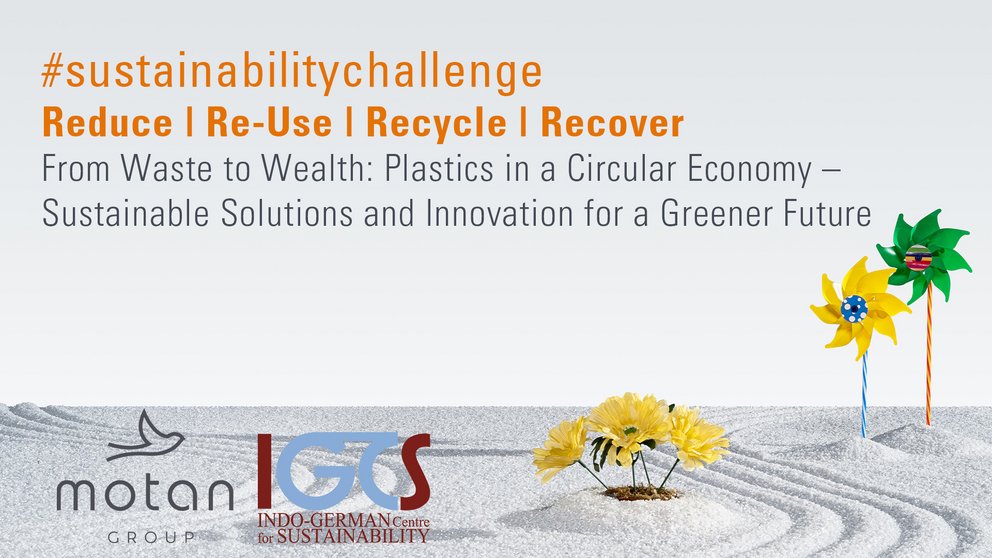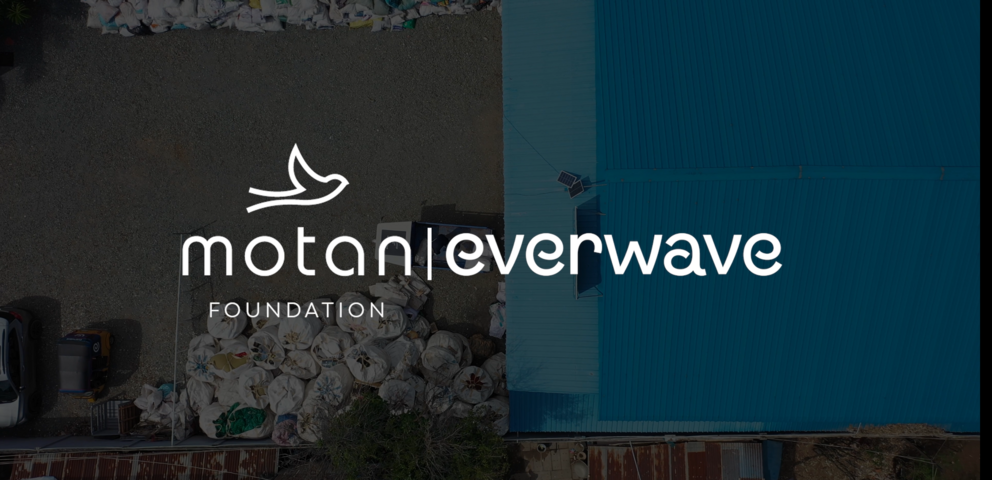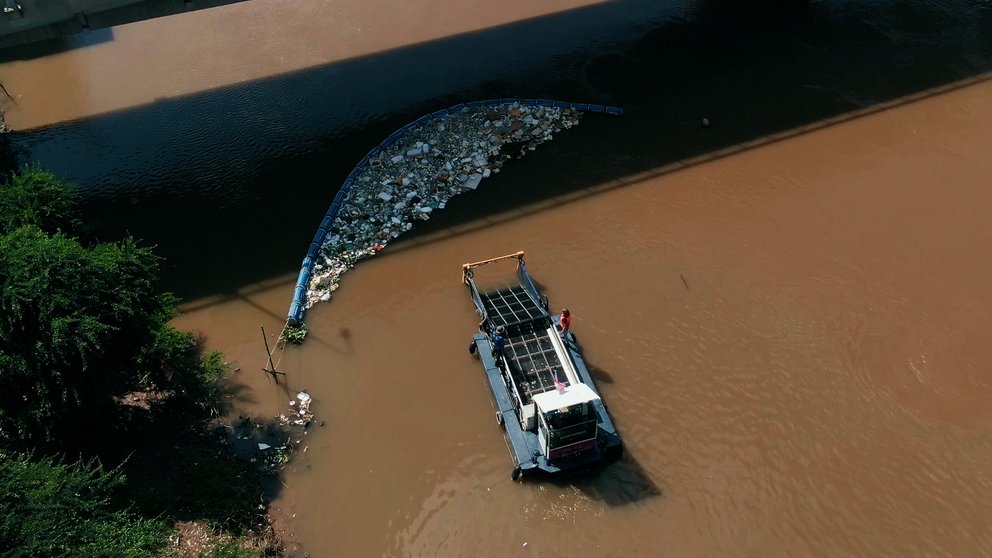Circular Solutions by motan

“Plastics are too valuable to just throw away,” is one of the statements with which me must confront ourselves in today’s world – at the same time, a world completely without plastic would be unthinkable for many reasons. It is used in the most diverse applications, whether in household goods or packaging, automotive and aircraft engineering, in electronics, in medicine or in the construction sector. Plastics are virtually indispensable and they also contribute to resource efficiency by functioning as insulation and lightweight construction materials, reducing heating oil and fuel consumption.

Environmental impact of plastic waste and resource shortages
Plastic waste is now a global problem, that society as a whole needs to solve. At the same time, the demand for resources is increasing and as the population continues to increase, so does the scarcity of resources. This is why the circular economy is such an important topic for the plastics industry.
The circular economy as a possible solution for plastics recycling
The circular economy is a regenerative system, where as much existing material as possible is shared, leased, reused, repaired, reconditioned and recycled in order to extend the life-cycle of a material.
Therefore, it is so important to be economical with existing resources. A well run circular economy can be a sensible and even necessary way of saving valuable plastic and can contribute to improving the negative image plastic has in society at the moment.
Good conditions for recycling plastic
Plastics have ideal properties for recycling. However, for the circular economy to work well, all actors in the processing chain, from plastics manufacturers and processors to customers and recyclers, need to cooperate and communicate with each other.
Another condition for an effective circular economy is sorting plastic waste according to type, which provides better conditions for recycling. The goal should be to generate the required amount of recycled material for the production of new plastic products. Developments and advancements in sorting and separating systems contribute to this.
motan as a partner for three areas of plastics
We see ourselves as a partner working in three areas of plastics: the manufacturing of virgin material, recycled material, and plastics processing generally. Connecting the various production processes – using Industry 4.0 – is, in our opinion, important for a well-functioning circular economy. We can already access the data from our motan products using an OPC-UA interface. More data will follow in the future which will enable a virtually complete data-exchange within the processing cycles. The properties of recycled material, which can change after repeated recycling, can also be fed into this cycle and can then be used for precise dosing, for example.
Sensors will be more important than ever for quality control, in order to network and transfer information. The success of the circular economy will depend on developing transparency and showing what exactly a product is made from and where the product ends up.
Consumers also carry responsibility
Establishing a functioning circular economy will ultimately depend on consumers. Both reducing and correctly separating waste will play a role, as well as accepting products made from recycled material. This is an area where education and information is still needed.
Finally, it is important to remain realistic in terms of possibilities For example, recycled materials that have not been sorted properly or are contaminated cannot be recycled easily and will therefore need to be handled differently. There are already some promising first projects in this area. Efficient energy recovery should be the final step in circular economy.
Manufacturing of virgin material, recycled material and plastics processing seen as circular processes –also showing synergies in terms of data transfer for optimizing material cycles within the plastic industry




